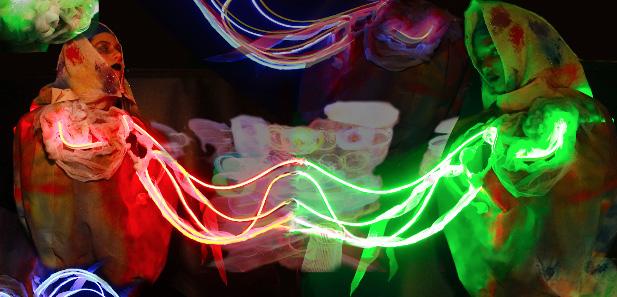
2 minute read
Marvel’s Cinematic Universe has lost its spark This article contains spoilers for MCU movies and TV shows.
By ELEKTRA GEA-SERETI, 2024
When I was eight years old, I saw my first Marvel Cinematic Universe (MCU) movie: “Captain America: The First Avenger.” I quickly became obsessed, watching all the MCU films, the X-Men series, the Spider-Man movies, the Disney+ shows and any spin-offs.
Advertisement
I was a dedicated fan, waiting for movie releases, going to the theater and, obviously, staying seated all the way until the end of credits scene. I still remember sobbing for hours during “Avengers: Endgame,” especially when Black Widow died. I used to eagerly await the news of an MCU project being in the works. Now, whenever I see a new movie has been released, I sigh with disappointment and forget that it even exists.
How did this change occur? How did Marvel movies go from being something I avidly watched as a young child and teen to something I watch only when I feel I have exhausted all other viewing options? I don’t even bother going to the movie theater; I simply wait until it’s on Disney+ or I forget about it. That’s because Marvel has lost its spark.
What made Marvel movies so appealing in the past wasn’t just their beautifully choreographed fighting sequences, such as Captain America versus Bucky Barnes in “Captain America and the Winter Soldier,” or their intricate and beautiful costumes, most notably seen in “Black Panther.” It’s the layer of raw emotional connections and complexities Marvel movies used to provide that other action and superhero movies don’t.
Marvel builds its characters full of flaws. Take Iron Man, for example. The Tony Stark we see in the first “Iron Man” movie is cocky, arrogant, egotistical, full of hubris and unwilling to ever grow out of his “bad-boy” player ways. He is in no way the same, albeit cocky, Iron Man that sacrifices himself at the end of “Avengers: Endgame.”
The character development isn’t rushed; it’s fleshed out. Take one of the most complex characters: Wanda Maximoff. Her character development and the acting prowess Elizabeth Olson brought to the role, starting in the second Avengers movie and all the way to her own miniseries, “WandaVision,” made her character a favorite of many. Her emotional range, power growth and transformation from working side by side with Ultron to almost killing America Chavez in order to build her own universe is fascinating to watch.
These are just two examples of complex, intricate characters who develop over the course of the different movies, and many more characters exhibit the same traits.
The original six Avengers all complement each other well and, combined with an invigorating plot and complex villain, they make the movies worth watching. The cherry on top? They don’t always win. They have to fight and work harder and even if they do, sometimes the consequences are catastrophic, like in “Avengers: Age of Ultron” or “Avengers: Infinity War.” One sees the heroes not only win but lose everything too.
The movies also delve into intricate topics and aim to include diverse cultures and important issues. “Black Panther” could be considered one of the most “politically charged” movies released in 2020. It is a movie that discusses “what it means to be Black in both America and Africa—and, more broadly, in the world,” according to Jamil Smith in TIME Magazine.
“Shang-Chi and the Legend of the Ten Rings” does the same. It is a superhero movie with a purpose deeper than simple entertainment. “This is a pushback for all the Asian hate crimes against us. It’s an answer to all the bigots who have been against us for decades,” British Chinese actor and writer David Ts said in an NBC









